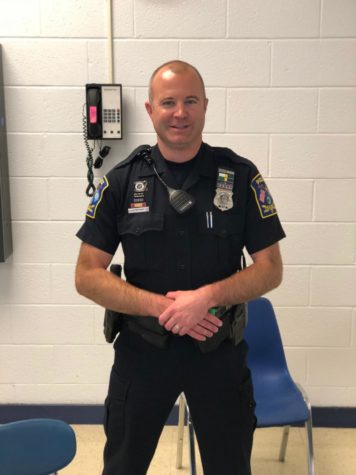Beyond High School: A Life of Service

A young man respecting his country.

An officer whom was once apart of the Army.
Choosing what avenue of life to go down after high school can be a very difficult task, especially at the young age of 17 or 18. Before you have a good grip on your interests and aspirations, deciding what you want to do can be very daunting. However, for those interested in a life of service, there are many interesting routes to take. For example, for those interested in full immersion, a military academy may be an intriguing option. For those who wish to maintain their civilian life for the most part, ROTC (The Reserves’ Officers’ Training Corps) might be the most appealing option. If you are not sure if the military is the place for you, you may “test drive” civilian life in college, and upon graduation, attend Officer Candidate School. Whichever you choose, all of these options are fantastic for building character and leadership skills, which prepare you for the long life ahead of you.
The Reserves’ Officers’ Training Corps is the option designed for those who may not have been interested in the full military immersion that the academies have to offer, but wish to still participate through college. To apply, you must seek out the specific branch that you are interested in, as the application differs. This program entails taking classes in military science, leadership, and courses related to whichever branch you have committed to. ROTC offers national, and three year scholarships in which you can potentially win full academic tuition scholarships, as well as summer opportunities abroad. You can “Be assigned to nuclear submarine or nuclear surface vessels”, “train aboard a carrier; training includes flight time on navy aircraft if feasible,” and many other interesting opportunities, according to the Naval ROTC web page.
Again, if you wish to have full immersion into the military lifestyle, a service academy might be the right choice for you. The main academies include The Naval Academy, West Point, The Coast Guard Academy, The Air Force Academy, and finally, The Merchant Marine Academy. All of these schools are extremely rigorous, yet rewarding. Similarly to the ROTC program, you will graduate from one of these prestigious schools with a bachelor’s of science, and with a service obligation. Upon graduation, you will receive the rank of officer from the Navy or Coast Guard, or second lieutenant from the Army or Air Force.
Officer Candidate School (OCS) is a great idea for people that aren’t sure if the military is for them. Officer Candidate school is designed to give you the basic tools for your role as a unit commander‐ but an officers job is not easy. You have a lot of people counting on you to make the right decisions and will look for you to make the move when “the going gets tough”. Your first step before going to OCS is general college, as you must have a four-year degree to be eligible for OCS. To get into general college you have to apply yourself in high school, join many clubs and have good SAT/ACT scores. Upon graduation from college as a civilian, you will have the opportunity to “Complete the rigorous, 12-week school receive formal commissions as U.S. Army Officers and assume the ability to command Soldiers.” There are many benefits of being an officer. For example, officers get free medical care. Moreover, an officer will be paid significantly more than an enlisted member of the Army: enlisted members receive around $19,000, while an officer will receive closer to $37,000. OCS as a whole is very similar to ROTC, with the main difference being that in ROTC you graduate as an officer or second lieutenant, while in OCS you must first graduate from college then attend a separate schooling to be commissioned.
All in all, choosing your future is a very challenging yet exciting task. Choosing a life of service, a life in the military, is even more exciting. Choosing any of the aforementioned options is one of the best ways to become “Part of something bigger than yourself”. According to Officer Maloney, you “Have to take it one step at a time,” and will gain core values of “Duty, respect, selfless service, honor, integrity, and personal courage”: These are all a collective ethos that we should try strive to integrate into our lives.







